Available 24/7
Withdrawal Management in Indiana
At Parkdale Center, we know that everyone’s needs are different when it comes to treating substance use disorders (SUD). Some people who are struggling with a SUD can experience symptoms of withdrawal when they stop using drugs or alcohol.
The effects of withdrawal on the body and mind can differ from person to person, but they can be uncomfortable and dangerous when not addressed correctly. Withdrawal symptoms typically occur 6-24 hours after someone with a dependence stops using. The severity and duration of withdrawal are dependent on the length of time abusing the substance, type of substance abused, family history, and medical and mental health history.
For some, detoxification is required to ensure their safety while they withdraw. Parkdale Center does not provide detoxification services. However, we do have a Withdrawal Management Program for those who can withdraw safely.
Parkdale’s Withdrawal Management Program gives you guided, individualized support throughout your withdrawal. The first step is to perform a comprehensive mental and physical health assessment so we can establish the kind of support program that will work best for you.
Understanding the Withdrawal Process
What Does Withdrawal Management Entail?
A comprehensive mental and physical health assessment involves thoroughly evaluating your physical and psychological well-being. The physical health assessment includes a complete medical history and physical examination to identify any current or potential health problems. It may involve various diagnostic tests such as blood tests, urine tests, imaging studies, and more.
The mental health assessment, on the other hand, focuses on evaluating your emotional well-being. It involves an in-depth interview and may include a questionnaire or screening tools to identify potential mental health disorders. The assessment takes into consideration your feelings, behavior, and thinking patterns. By combining these two assessments, we can develop a holistic understanding of your health and accordingly devise a suitable support program.
Once the assessment is complete, we begin the withdrawal management process. This involves monitoring your physical and mental health during the period of drug or alcohol withdrawal in order to ensure your comfort and safety. During this time, we provide you with medications to reduce cravings and ease any symptoms. We also offer psychotherapy sessions to help you manage your emotions and urges.
Once a doctor has evaluated your unique situation, we provide medication management, psychiatric support, and physical monitoring to make you as comfortable as possible during your withdrawal. We also offer nutrition guidance and lifestyle coaching to ensure you are getting the proper nutrients and exercise to support your long-term recovery. In addition, our team of professionals provides supportive counseling sessions that focus on addressing underlying issues that may have contributed to your substance use disorder.
We understand that everyone’s individual needs are different, so we work closely with you to develop a personalized program tailored to your needs. We aim to create a safe and supportive environment for you so that you can focus on making progress toward sobriety without feeling overwhelmed or alone.
We believe that the road to recovery starts with understanding and working through underlying issues that may have caused or contributed to your substance use disorder. If you or someone you love could benefit from our withdrawal management program in Indiana (or through telehealth), contact us today at 219-400-3545
Begin Your Journey to Wellness
Find your path to individual freedom at Parkdale Center in Indiana.
Our Treatment Services
Withdrawal Management
Partial Hospitalization
Intensive Outpatient
Dual-Diagnosis Treatment
Career Restoration Program
Telemedicine Services
Our Professional Treatment Options
Parkdale focuses on treating professionals across the United States in highly accountable industries who struggle with addiction. Parkdale utilizes innovative programs and solutions that meet those struggling with substance use disorder. Privacy and anonymity are of the utmost importance to the team at Parkdale.
What to Expect During Withdrawals
Symptoms of Withdrawal
Withdrawal symptoms can widely vary depending on the type of substance used, the duration of use, and individual health conditions. They can range from mild discomfort to severe health complications and are often a significant hurdle in the path toward recovery.
Physical symptoms of withdrawal may include sweating, trembling, nausea, vomiting, and fatigue. In severe cases, individuals might experience fever, seizures, or even hallucinations. For example, withdrawal from depressants such as alcohol and benzodiazepines can lead to dangerous symptoms like seizures and delirium, potentially requiring immediate medical attention. Stimulants like cocaine and methamphetamine, on the other hand, may cause extreme fatigue, depression, and changes in appetite during the withdrawal phase.
Psychological symptoms often accompany physical discomfort. Individuals might experience symptoms such as anxiety, restlessness, irritability, insomnia, depression, or mood swings. In some cases, withdrawal can lead to severe depression and suicidal thoughts, underscoring the need for professional supervision and support during this challenging period.
Apart from these, cravings are a common symptom experienced during withdrawal. These powerful urges to use the substance can be extremely difficult to manage and are a major factor leading to relapse. Recognizing triggers for cravings, managing them effectively, and developing new coping strategies to address them is an important part of the withdrawal process.
Withdrawal symptoms can begin as soon as a few hours after the last use of the substance and may last from several days to a few weeks, again depending on several factors, including the type of substance used.
It’s important to remember that withdrawal can be dangerous and should not be attempted without medical supervision. A professional detox program can provide the necessary medical support and monitoring to ensure safety during withdrawal.
Furthermore, effective treatment doesn’t stop at managing withdrawal symptoms; rather, it serves as the first step toward long-term recovery. It’s vital to follow detox with a comprehensive treatment program that includes therapies like cognitive-behavioral therapy (CBT), group counseling, and other treatment modalities that address the root causes of substance use disorder and equip individuals with skills to maintain their sobriety.

Confidential Callback
Withdrawal Management in Indiana
The Benefits of a Withdrawal Management Program
While withdrawal is a challenging process, it’s a crucial step toward recovery. Being aware of the potential symptoms and understanding the necessity for professional support can make this journey smoother and safer.
Participating in a withdrawal management program is a key step toward recovery from substance use disorders. Such programs offer a safe, supervised environment where individuals can navigate the challenges of withdrawal with professional support. This approach drastically reduces the risk of potentially life-threatening complications arising from unsupervised withdrawal.
Furthermore, a withdrawal management program goes beyond just managing symptoms. It is the gateway to comprehensive treatment, setting the stage for therapeutic interventions. The program aids in stabilizing the individual’s physical health while preparing them mentally for the next phase of recovery.
Stories of Hope
Parkdale gave me the single best gift I was given in life. Not only did the staff all relate to my situation on a basis of related experiences but they also showed compassion for those suffering from this disease along with comforting my family all the same. From reassurance to..
Matt E
- Alumni
Parkdale Center for Professionals assisted me in turning my life around from it’s lowest point. From the staff to the facility my recovery experience was Awesome!! They gave me hope when I had none and taught me the skills necessary to live a productive sober life. I was so influenced..
Robert K
- Alumni
Parkdale saved my husband’s life. They provided me with the family support I needed, provided resources for our child, and build connections that I know I could reach out at anytime I needed, even after his treatment. He has established connections that I know he will use as resources if..
Carrie S
- Loved One
Absolutely saved my life and my career. Alice is the most amazing human I have had the pleasure of knowing.
Holly Haft
- Alumni
Healthcare provider, 29 year old male. Making a decision to go to rehab was a tough one at the time. I was scheduled to visit family in the Caribbean but had relapsed weeks prior and life was becoming impossible. Three days before my flight I reached out for help. I..
Dan Scubaman
- Alumni
Incredible therapists, individualized treatment plans, respected and challenged as an adult approach, structured environment yet given flexibility and freedom unlike other treatment centers, professional and authentic staff, they provide comprehensive medical and psychological treatment in a tranquil bed & breakfast setting.
Scott Christensen
- Professional
5 stars for everything – staff, facility, program, etc. They understand we are all unique and they mange your rehabilitation program to your specific needs. You get the individualized attention and tools to help you!
Lawrence Anthony
- Alumni
Absolutely gorgeous facility with staff that know how to manage healthcare professionals to a T.
Tom Berger Jr.
- Alumni
Get Immediate Help with a Single Call

Call Us Today to Learn More About Our Indiana Withdrawal Management Program
These programs provide individuals with the necessary resources to manage cravings. They are taught effective coping strategies that can help prevent relapse. Plus, being part of a program allows individuals to start building a recovery support network, bolstering their journey toward long-term sobriety.
Our Indiana withdrawal management program is about surviving withdrawal and laying a solid foundation for a successful recovery journey. It fosters resilience, equips individuals with essential coping mechanisms, and ultimately empowers them to lead sober, healthier lives.


